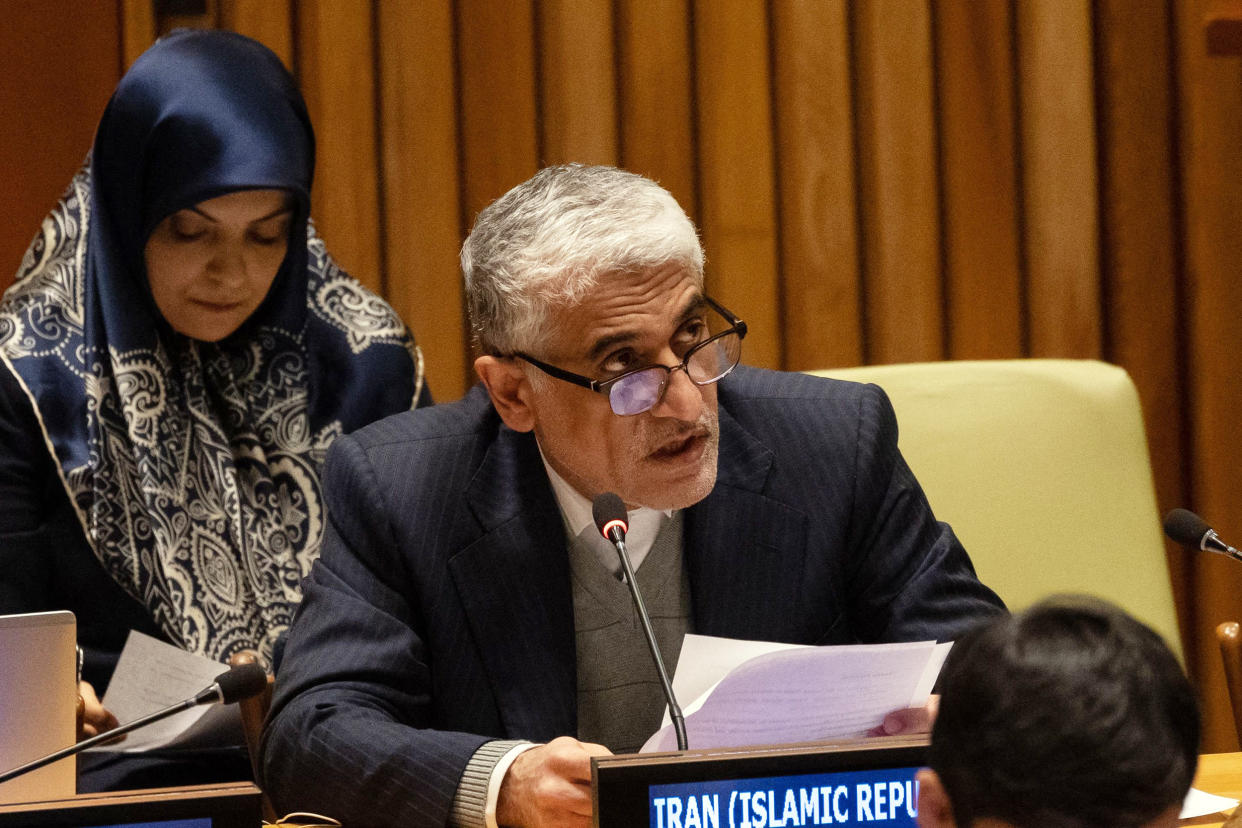Iran ousted from U.N. women's rights commission amid crackdown and executions
Iran was expelled from the U.N. Commission on the Status of Women on Wednesday after the United States called for its ouster over Tehran's “systematic oppression” of women and violent crackdown on street protests against the death of Mahsa Amini.
Twenty-nine members of the U.N. Economic and Social Council voted in favor of a resolution put forward by the U.S. for the immediate termination of Iran from the commission for the remainder of its 2022-26 term. Eight members voted against the resolution, and 16 abstained.
The resolution, which the U.S. proposed last month, expressed “serious concern” over Iran's actions since September “to continuously undermine and increasingly suppress the human rights of women and girls, including the right to freedom of expression and opinion, often with the use of excessive force,” in contradiction of the commission’s mandate, “as well as through the use of lethal force resulting in the deaths of peaceful protestors, including women and girls.”
Prior to the vote, the U.S. ambassador to the United Nations, Linda Thomas-Greenfield, said Iran's membership put an “ugly stain” on the commission’s credibility.
“The commission is the premier U.N. body for promoting gender equality and empowering women,” she said. “It cannot do its important work if it’s being undermined from within."
“We can act in this moment to support women. We can act in direct response to our constituents, the global community of women," she said, adding that Iran's government wanted to "wiggle" out of the vote, "to use misinformation and procedural tricks to obscure the truth and avoid kind of accountability."
Iran’s U.N. ambassador, Amir Saeid Iravani, accused the U.S. of making an “illegal” request and bullying.
“It is not at all unexpected that the United States is taking such unlawful action against Iran given its longstanding hostility towards the Iranian people, but if carried out, it would be exceedingly dangerous to the U.N. system integrity,” he said.
Iran's state-run Nour News media outlet, which is associated with the Iranian National Security Council, swiftly rebuked the country's expulsion on Twitter, calling the move "a clear violation of the philosophy of the #UN and its charter, and worse, the Secretary General of the UN, as the guardian of the credibility of this institution, has remained silent.”
Amini, a 22-year-old Kurdish woman, died in September, a few days after being taken into custody by morality police in Tehran for allegedly failing to fully cover her hair and defying the country’s strict dress codes. Her death sparked outrage across the country and more than two months of protests.
In the wake of her death, Iranian activists abroad and human rights groups called on the Biden administration to rally other countries to remove Iran from the U.N. commission over its response to the protests, which have been led by Iranian women.

Iran, which ranks 143rd among 146 countries in the World Economic Forum's global gender gap index, was voted onto the commission by secret ballot. The vote to oust Iran from the commission came days after the country carried out a second known execution of a prisoner detained and convicted amid the nationwide protests challenging the country’s theocracy.
